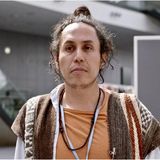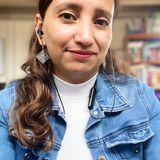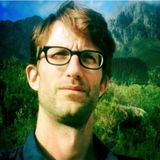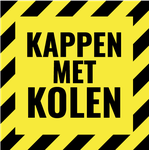The Colombian activist Juan Pablo Gutierrez is coming to Amsterdam at the invitation of the German action group Still Burning, in collaboration with Kappen met kolen. Juan Pablo is an activist from Colombia who lives in exile in Paris. Coal mining in Colombia is among the most destructive in the world. In Colombia, thousands of people have been displaced from their land and even killed to make way for the lucrative coal mining industry, which benefits Western multinationals. Amsterdam plays a key role in the global trade of “blood coal,” both physically and financially. In the past year, over a million tons of coal from Colombia were shipped through the Port of Amsterdam to Germany. Additionally, the Zuidas is involved in blood coal: ING, for example, finances the Anglo-Swiss mining company Glencore – which operates several coal mines in Colombia – with billions of euros. Juan Pablo represents the Yukpa people, who have been severely affected by coal mining.
Earlier, it was stated here that millions of tons of coal were being shipped through the Port of Amsterdam. This has since been corrected.




About the Program
Juan Pablo represents the Yukpa people, who have been severely affected by coal mining. In addition to Juan Pablo, there will be a video link with Andrea Diaz of La Guajira le Habla al País, a collective opposing extractivism in Colombia. Members of this collective were in The Netherlands last year to call attention to the devastating effects of coal mining in Colombia’s La Guajira region. Also present will be Joris van de Sandt of Dutch NGO Pax for Peace, who has done extensive research into the blood coal chain and the role of the Netherlands in it.
About the Speakers
Juan Pablo Gutierrez is a defender of Mother Earth, a professor of decolonial studies, and an international representative for the Indigenous Yukpa population in Colombia. For over twenty years, he has fought to defend and liberate Indigenous territories, documenting and denouncing the appropriation of these lands by multinational mining companies. After surviving two deadly attacks by paramilitary groups, Juan Pablo has been living in political exile in France since 2018. There, he continues to organize decolonial, ecological, and social struggles and advocates for life in various spaces and on different scales.
Andrea Diaz is an environmental engineer and Geographic Information Systems specialist with experience in environmental impact analysis of open-pit coal mining. She supports the communities affected by Glencore’s extraction activities in La Guajira, Colombia. She works for the Center for Research and Popular Education (CINEP).
Joris van de Sandt is an expert in the field of business, conflicts, and human rights. Since 2013, he has been programme leader for Latin America at the Dutch peace organisation PAX (formerly Pax Christi). In addition, he has been teaching and conducting research at various Dutch universities for over 25 years on a variety of topics related to peace work, conflict over natural resources, and supply chain responsibility. He contributed to several reports about the subject of blood coal mining.
About ‘Kappen met kolen’
‘Kappen met kolen’ is a campaign focused on ending the use of coal, the most harmful fossil fuel for the environment (through mining), the climate (CO2 emissions), and health (with the release of PAHs and fine particles during combustion). Although the Netherlands has only four remaining coal-fired power plants, it plays a significant role in the transit of coal to Germany and Central Europe: millions of tons of coal—partly blood coal from countries like Colombia—are handled through the ports of Rotterdam and Amsterdam. Activists from ‘Kappen met kolen’ regularly block coal trains and ships heading to Germany. They also target Tata Steel IJmuiden, a large consumer of coal used to extract iron from iron ore, and the biggest polluter and CO2 emitter in the Netherlands.
About CINEP
CINEP/PPP is a social center of the Society of Jesus founded in 1972. They:
1. Promote the defense and enforceability of human rights from an integral ecology framework and with an intersectional perspective of reconciliation
2. Promote and support initiatives and processes of peace-building in rural and urban areas in a scope of reconciliation
3. Aim to broaden and expand actions in favour of agrarian justice within the framework of integral ecology
4. Aim to strengthen their mission for economic, social and environmental sustainability







